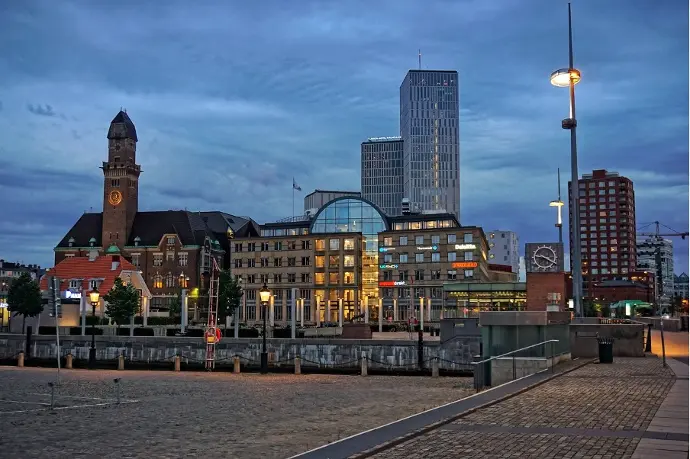In the Nordic countries, the advancement of digital and natural solutions have emerged focal elements of an agenda to dynamise regional, local and city development. Ambitious and consistent schemes have resulted in transformational processes generating a range of intriguing lessons from various urban centres. Examples include the achievements of Malmö, Helsingborg, Stockholm, Copenhagen, Odense, Århus, Helsinki, and many more. Partly drawing on these cases, IKED engages in benchmarking and analysis of comparisons with other parts of the world.
Malmö's transformation from a traditional industry hub to a multicultural knowledge-intensive eco-village, is a case in point. IKED has contributed with a review to appear alongside published by Routledge in a forthcoming volume edited by prof. Sylvie Albert, University of Winnipeg, Canada.
Capacity building including citizen engagement and the maturing and strengthening of stakeholders as effective contributors as well as demanders on public service delivery of various sorts is critical for laying the basis for a societal context where smart and ecosystem functionality can take hold. IKED engages in several project agendas aimed at catalysing and enabling greater such momentum at regional, local, and city level. This includes several EU-projects, spanning expert assignments for the EU Commission on Research Infrastructure and Scientific data. A novel definition of digital enablers, placing emphasis on purpose, content and methodology matching with digital tools, has been put to practice through integration in urban Healthy corridors, championed by the URBiNAT project. In Inconet-GCC, smart cities were identified as a key theme serving as a unifying driver of science and technology collaboration between the EU and GCC, including implications for human health.
Enabled by financial support from the Swedish aid-organisation, SIDA, IKED collaborated with Prof. Henry Etzkowitz at the Triple Helix Organisation on a scheme for inducing favourable stakeholder relations in Ethiopa. The collaboration culminated in the arrangement of a major conference held at the United Nations regional centre. Relevant strategies to bolster capacity through fruitful collaboration were reviewed, based on experience from various countries around the world. Concrete initiatives followed in support of improved government-private sector-academia collaboration in Addis Abeba, and Ethiopia more broadly.
The proceedings feature the inputs, providing an overview of useful experience in inter-actor capacity building where science, technology and innovation blend with consideration to the institutional and social context.
In China, IKED collaborates with the Smart Cities Central Lab, and through them with a number of regional cities and bodies, on smart city aspects linking to participation and NBS.
In India, IKED is well connected with universities, S&T parks, and private sector entities making headway on novel smart solutions. Regions have obtained mandates to push forward with applications tackling severe outstanding challenges, such as congestion, mobility, security, pollution, health, and well-being.
While bureaucratic barriers continue to present hurdles, the private sector proves increasingly agile and efficient, opening up for concrete collaboration opportunities, to be returned to.


Smart city strategies feature as a core subject of IKED's collaboration with the University of Geneva, which also includes joint work on training and related capacity building schemes with global reach. This collaboration further connects with UN-Habitat and UNU in Toronto, Canada, among others.
On several occasions, IKED collaborated with the World Eco-City Summit. At its bi-annual summit in Abu Dhabi, 2016, IKED moderated sessions on key governance aspects. at the 2022 edition, contributions focused on implementation strategies in support of circularity.


